![]() — หน้าแรก — เกาะติดข่าว
— หน้าแรก — เกาะติดข่าว
ข่าวเศรษฐกิจและธุรกิจประจำสัปดาห์
-

Directorate of Investment and Company Administration (DICA) plans to implement a new electronic company registration system in 1 August 2018
An electronic registration system is being set up by the Directorate of Investment and Company Administration. The digital system, called Myanmar Companies Online, will be part of the reforms entailed by the new Companies Law, which was enacted last year but will be implemented on August 1. In an announcement, DICA said that the new system will also be launched on August 1. -
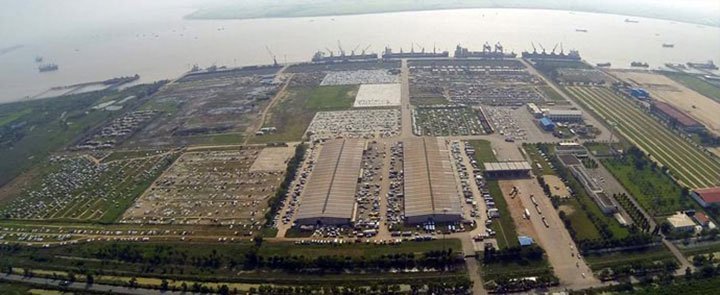
Foreign Direct Investment in Thilawa Special Economic Zone (SEZ) increased by US$ 20 million compared to last year
Foreign investments worth some US$400 million went into the Thilawa Special Economic Zone prior to the end of this fiscal year, state media reported quoting the Directorate of Investment and Company Administration. This figure is up by $20 million compared with last year. Japan, Singapore, Thailand, South Korea, the United Kingdom and the Netherlands were the largest investors. The manufacturing sector absorbed most of the foreign direct investments (FDI), accounting for 73 per cent of the total FDI in the zone. Capital was also injected into the trading, logistics, service, real estate and hotel sectors. Japan invested the highest in Thilawa SEZ, followed by Thailand, the report said. -
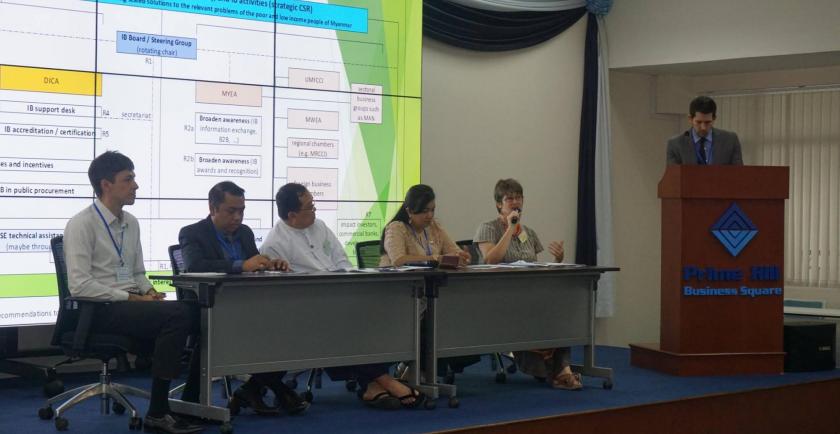
Ministry of Commerce, Kachin State government, the DFID and the DaNa Facility organized the Kachin Regional Product Show and Export Promotion Workshop to create new export opportunities for Kachin businesses
The Chief Minister of Kachin State Dr. Khet Aung, U Aung Soe the Director General of the Myanmar Trade Promotion Organization in the Ministry of Commerce (MoC), and Peter Brimble the team leader of the DaNa Facility launched the two-day, "Kachin Regional Product Show and Export Promotion Workshop,” which brings together private sector representatives from across Kachin State alongside key public sector figures from relevant Government departments. The workshop was held in Myitkyina City Hall, and launched an expanded drive to stimulate exports from Kachin, and explored the potential for Kachin products in the National Export Strategy. It also focused on the roll out of the Myanmar Private Sector Development Framework and Action Plan: the government’s approach to private sector development. These programs represent a major step towards decentralizing responsibilities for trade and investment promotion and facilitation to the states and regions. -
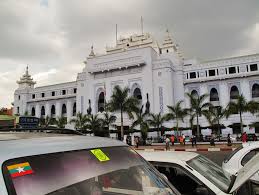
Yangon regional government drafted the plan to support economic growth, especially the development of industrial zones and SMEs, with a focus on agriculture, industry, and services
The Yangon regional government will implement the regional development plan this year with public-private partnership (PPP) system, said regional Planning and Finance Minister U Myint Thaung on March 16. U Myint Thaung submitted the regional plan of Yangon within the six-month interim period from April to September 2018 to the Yangon regional legislature on March 16. The documents included a description of the summary of the regional development plan. ‘’We already submitted these plans to the National Planning Commission. We have also been conducted feasibility study and have tried to implement the projects with PPP system, without the budget for the government,” U Myint Thaung said. -
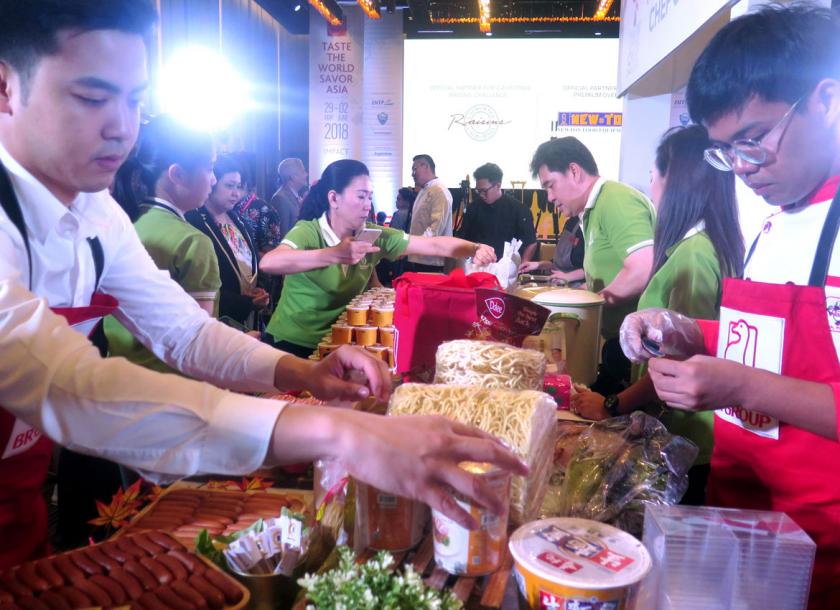
In order to enhance partnership in trade and seek foreign investors in the agriculture and food sectors, the 15 edition of Thaifex - World of Food Asia will be jointly organized by Koelnmesse Pte Ltd, the Thai Department of international trade promotion (DITP) and the Thai Chamber of Commerce (TCC) between 29 May - 2 June 2018
Thaifex-World of Food Asia, in its 15th edition, will take place for 5 days, from May 29 to June 2. The event is organised by Koelnmesse Pte Ltd, the Thai Department of International Trade Promotion (DITP), and the Thai Chamber of Commerce (TCC). It seeks to tap into the emerging market opportunities in ASEAN. Thailand is not only looking to enhance partnership in trade with the world but is also seeking foreign investors in the agriculture and food sectors, said Nuntawan Sakuntanaga, permanent secretary of Commerce, Thailand. Food Industry is one of the major sectors instrumental in driving Thailand’s economy. In 2017, food exports generated income of more than US$26 billion or about 830 billion baht to the country, employing as many as 10.75 million workers in the agricultural and fishery sectors. The competitiveness of Thai food industry lies in the complete supply chain, Mrs Sakuntanaga went on. -
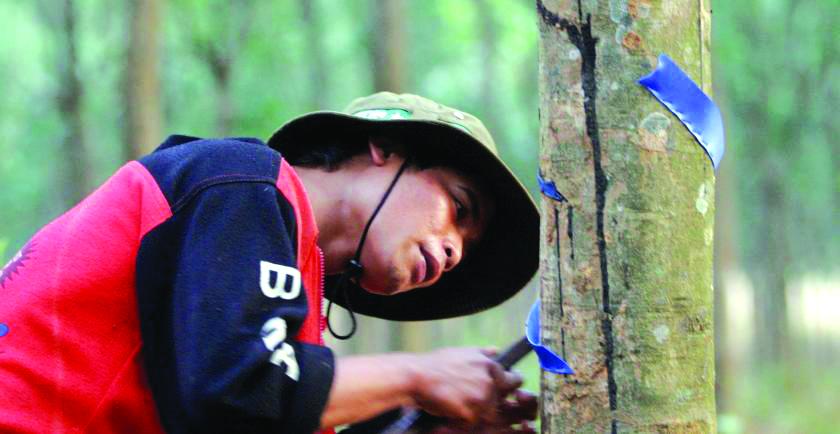
Rubber Planters and Producers Association called on UMFCCI office to discuss the establishment of rubber manufacturing zones in Mon state and other areas
The Rubber Planters and Producers Association has called for establishing rubber manufacturing zones in Mon State and in other areas that have a number of rubber plantations in order to produce natural rubber and value added rubber products to meet international standard of quality. They called for it at the 15th meeting between the Vice President 1 and business stakeholders held on March 7 at UMFCCI. “The Government should prepare special zones for rubber production such as rubber bands, tires, and rubber gloves, so that everything is ready when Foreign Direct Investments come into the sector. The country must follow the rules for protecting the environment including waste water management. Water treatment is very costly for a single factory, but is cheaper when it is carried out collectively,’’ U Khaing Myint, Secretary of Myanmar Rubber Planters and Producers Association, said. -
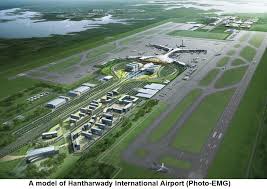
After the original negotiation with a Singapore-led consortium fell apart in January, the government is negotiating with Japan to finance the construction of Hanthawaddy International Airport in Bago Region
The government is in negotiations with Japan for financing the construction of Hanthawaddy International Airport in Bago Region, after the original negotiations with a Singapore-led consortium fell apart in January, Transport Minister U Thant Sin Maung said on Tuesday. “This project is not halted,” he said, noting that Japan is very interested in the project. “It must go on.” U Thant Sin Maung said the original agreement for the construction of the airport was effectively cancelled because of financial issues. “We could not reach agreement in negotiating such matters as cost estimates, duration for operations (of the consortium) and the means to pay back the loan,” he said. “Therefore, all sides happily ended the negotiations. It’s not ending the project.” The minister said a mega-project like Hanthawaddy International Airport needs comprehensive long-term consideration, given the amount of total investment for the whole project is about US$1.5 billion (K2 trillion). -
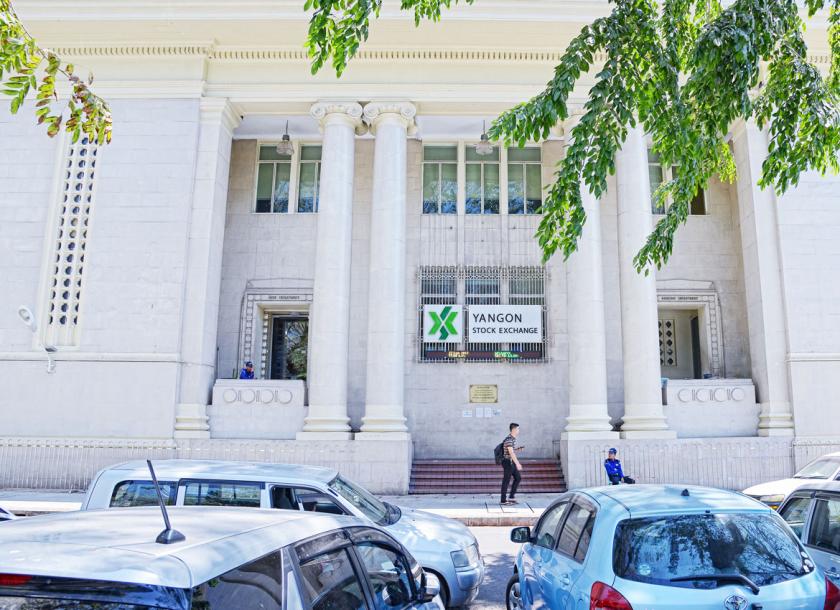
Yangon Stock Exchange (YSX) doubles stock trade matching from two to four times
The Yangon Stock Exchange (YSX) will double its stock trade matching times to four from two previously, pending confirmation from the Securities and Exchange Commission of Myanmar (SECM), according to a statement issued by the exchange yesterday. The new stock trade matching times will now be 10 AM, 11 AM, 12 PM and 1 PM. Currently, stock orders are matched at11 AM and 1 PM. It is the second time the exchange has increased matching times, which is the process of matching buy orders to sell orders, since opening for business in 2016. It increased matching times to twice a day last August. The move is aimed at boosting activity on the YSX, both in terms of the volume of shares traded and the number of investors participating on the exchange. -
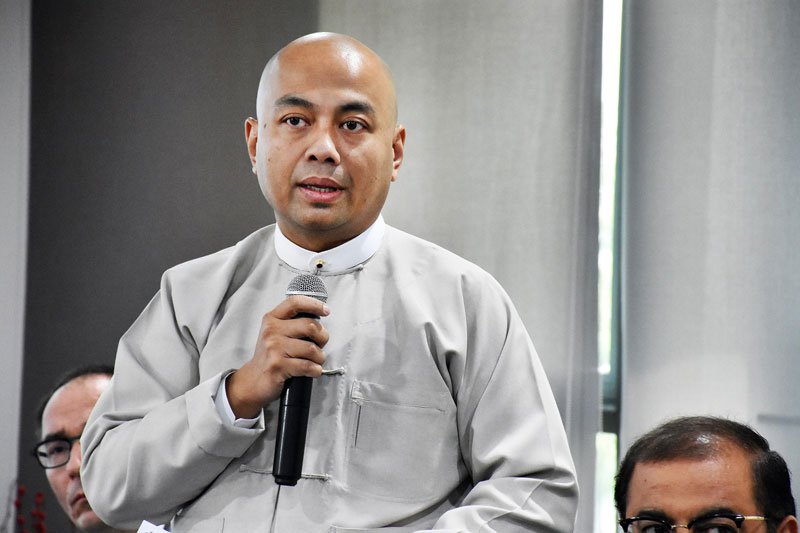
Village Link, a leading digital service company in Myanmar, launches cutting-edge digital communication platform for the farmers
Village Link, a leading digital service company in Myanmar, officially introduces Htwet Toe, an innovative agri-mobile application for the farmers of Myanmar that aims to build a community between the farmers and agricultural professionals on a single platform, the company said in a statement. The company also announces the support of the Geodata for Agriculture and Water (G4AW) program, which will assist to further develop the application. Myanmar’s agriculture sector is the backbone of the nation’s economy. It contributes to 38 percent of GDP and employs over 60 percent of the labor force. Compare to other ASEAN nations, Myanmar has more arable land and a wider variety of growing conditions. But due to agricultural challenges as well as lack of technology and information, Myanmar’s farmers have among the lowest agricultural productivity and income in the region.[1] Htwet Toe brings a unique solution for Myanmar farmers to get the information about their land and agricultural advice from professionals through just a few keystrokes on their smartphone. -
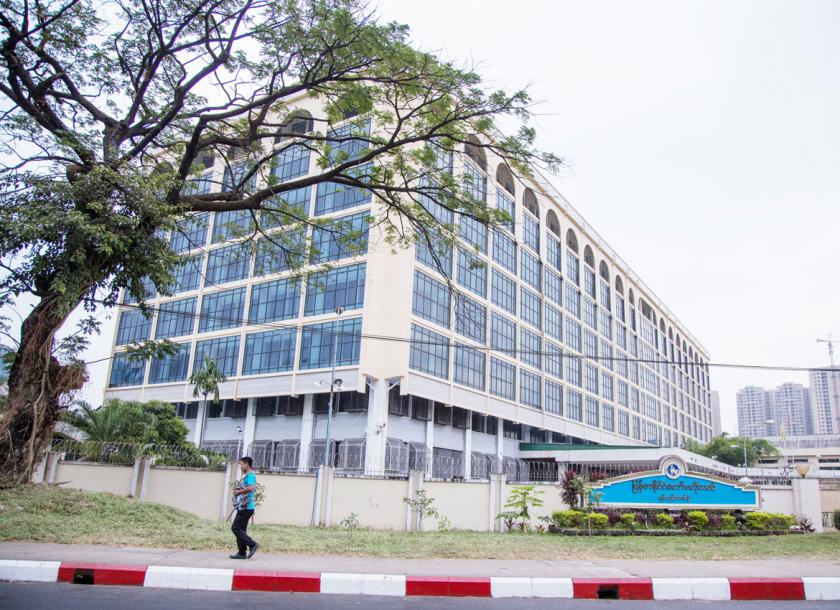
Longer term bonds with higher interest rates should be auctioned to draw more bond investors and reduce the risk for the government
Myanmar needs to strengthen its strategy of repaying debt through the sovereign bond market, MP Daw Thet Thet Khaing said in Parliament last week. The country had internal debts of around K18 billion and foreign debts of around $9.1 billion as at January 31, 2017, according to the Ministry of Planning and Finance (MOPF). While the foreign debts are based on attractive 10-40 year terms with interest rates of up to 5 percent, the government is currently paying interest of between 8.16pc and 9.69pc on Treasury bills and bonds with maturities ranging from 3 months to 3 years. This implies that interest rates on internal debts are much higher than external debt. In addition, as the bonds have relatively short term maturities, the government is also taking on more risk when repaying those debts, according to the Myanmar Debt Management Strategy. As such, longer term bonds with higher interest rates should be auctioned to draw more bond investors and reduce the risk for the government.
เกาะติดข่าว
Copyright © 2014 Business Information Center All Rights Reserved.







